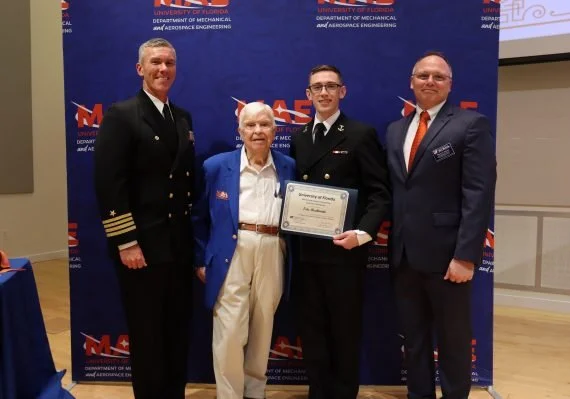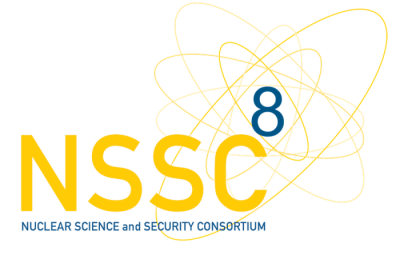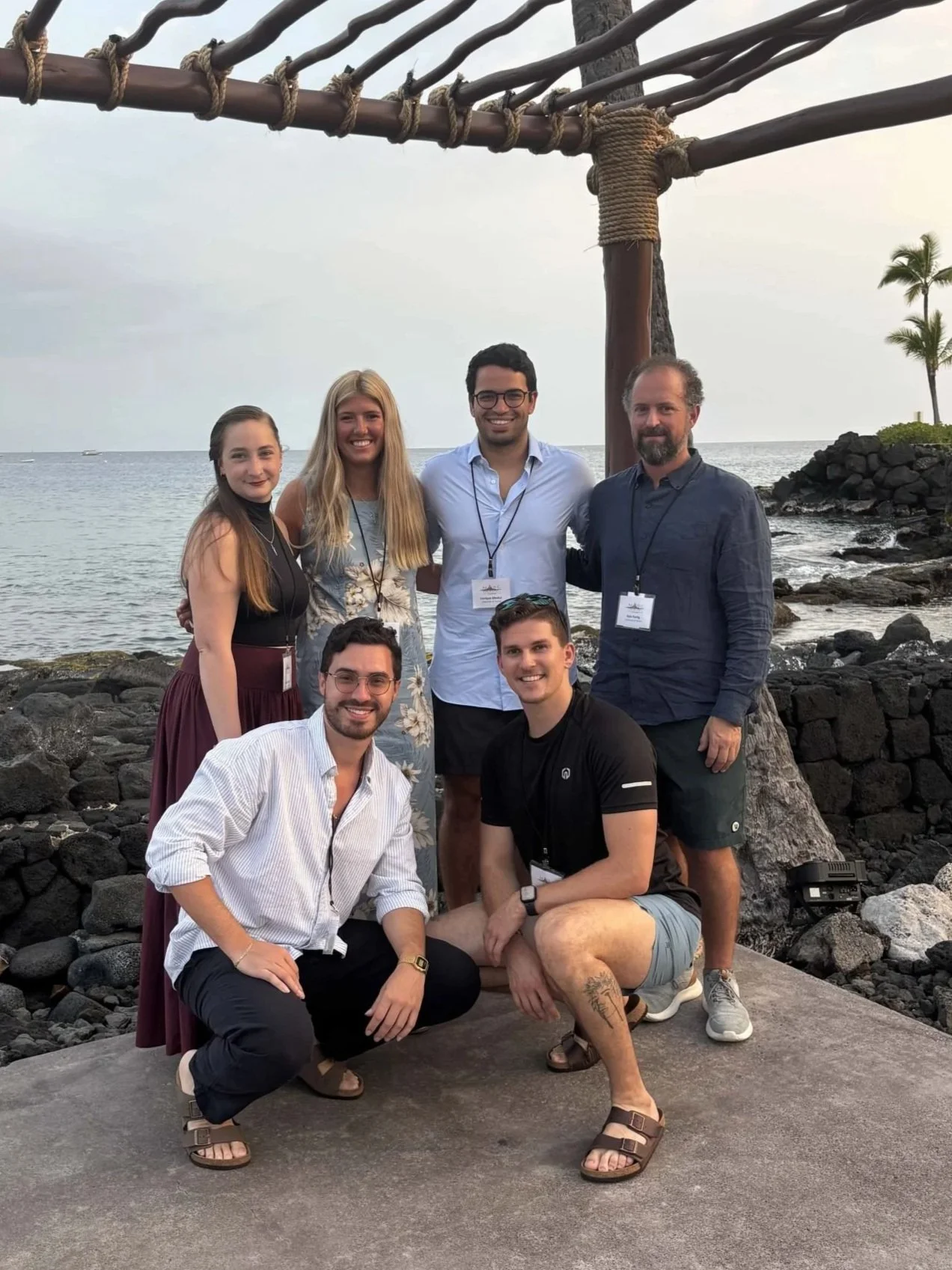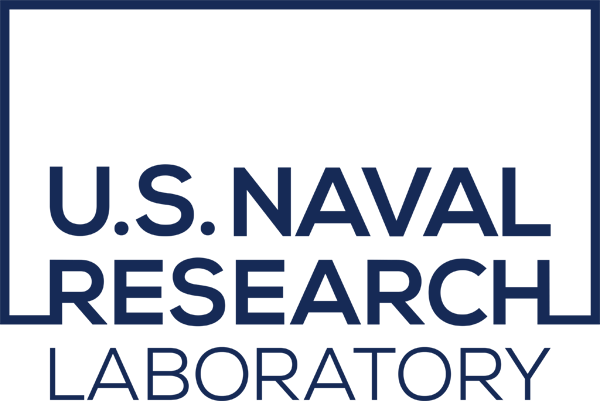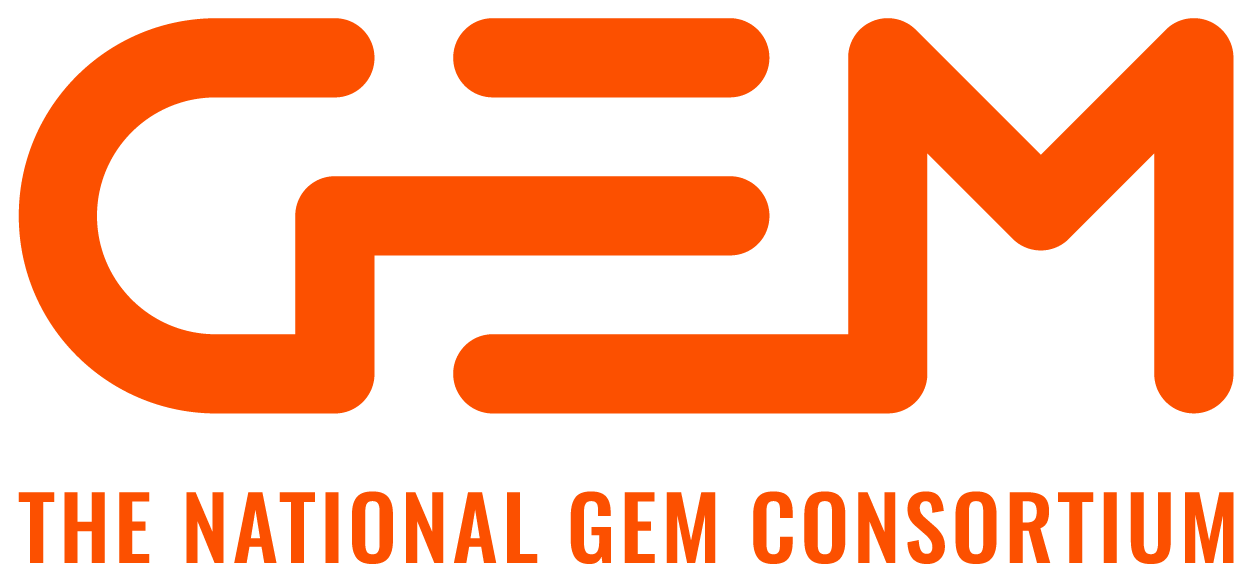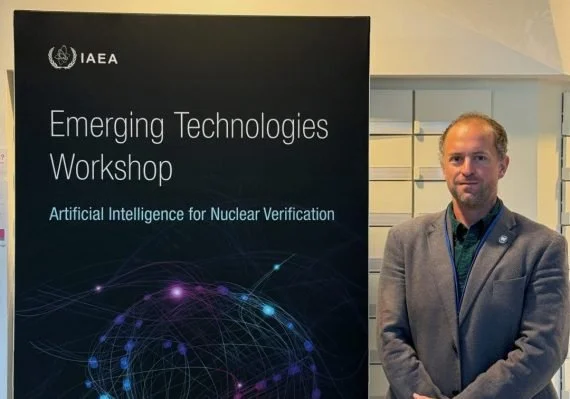2025
April 29th, 2025 - Eric Realmuto Receives Prestigious Albritton Scholarship for ROTC Excellence
Brigadier General James P. Albritton (Ret.) returned to his alma mater on Thursday, May 24, 2025, to present the Brigadier General James P. and Edythe P. Albritton Scholarship to Optical Science and Nonproliferation (OSN) undergraduate group member Eric Realmuto during the Department of Mechanical & Aerospace Engineering’s annual awards ceremony. The scholarship—bestowed each year upon two Reserve Officers’ Training Corps (ROTC) cadets or midshipmen who excel academically in MAE—recognizes student–leaders who exemplify service, scholarship, and technical ingenuity.
Realmuto, a third-year Naval ROTC midshipman with a near-perfect GPA supports research activities in Dr. Kyle C. Hartig’s OSN Group focused on laser remote sensing and plasmas for national security applications. Accepting the award, he credited the UF MAE faculty and the NROTC staff for “cultivating an environment where discipline in the classroom translates directly to mission-focused engineering.”
Established in 2016 through a generous endowment from the Albrittons, the scholarship provides financial support to undergraduate MAE majors enrolled in any branch of UF’s ROTC programs. Recipients are selected on the basis of academic performance, leadership potential, and dedication to the ideals of the engineering profession and the U.S. military.
Congratulations to MIDN 3/C Eric Realmuto on this well-earned honor, and many thanks to Brigadier General and Mrs. Albritton for their continued investment in the next generation of engineering leaders.
April 12th, 2025 - Eric and Paige Selected for NSSC-LLNL Summer Program
We are proud to share that Paige Anderson and Eric Realmuto, two outstanding students in our research group, have been selected to participate in the 2025 Nuclear Science and Security Consortium (NSSC) Summer School hosted at Lawrence Livermore National Laboratory (LLNL).
The NSSC Summer School is a highly competitive program that brings together top students from across the country to engage in intensive coursework and hands-on research in nuclear science, national security, and nonproliferation. This year’s program will focus on cutting-edge topics in nuclear forensics, detection technologies, and global security challenges.
Paige and Eric have demonstrated exceptional commitment and creativity in their work at UF, and their selection reflects not only their individual achievements but also the growing national recognition of the high-impact research conducted by our group. During the summer school, they will have the opportunity to collaborate with leading scientists at LLNL, deepen their technical expertise, and contribute to projects of national importance.
Please join me in congratulating Paige and Eric on this well-deserved opportunity!
April 8th, 2025 - Precision, Passion, and Plutonium: UF Students Shine at MARC XIII
In the sunny embrace of Kailua-Kona, Hawaii, the Thirteenth International Conference on Methods and Applications of Radioanalytical Chemistry (MARC XIII) welcomed scientists from around the globe—and among them, a spirited group from the University of Florida (UF) Optical SCience and Nonproliferation Group, ready to make waves in nuclear science.
Led by their faculty mentor Prof. Kyle C. Hartig, the group arrived energized and excited, prepared to contribute seven presentations to the technical program. Their schedule was packed, spanning multiple tracks and showcasing the diverse research strengths of the team.
Each day of the conference saw a steady stream of contributions from the group. In sessions ranging from environmental radioactivity to nuclear forensics and analytical method development, their work sparked conversations and new collaborations. Each student brought a unique voice to the table:
W. Kersey presented “Drivers for Thermal and Radiolytic Degradation of Plutonium Oxalates”, shedding light on the degradation mechanisms critical to nuclear material stability and storage.
H. Patz showcased advancements in forensic imaging with the talk “Real-Time Particle Discrimination in Digital Autoradiography for Nuclear Forensics.”
J.I. Borrero Negrón delivered “Machine Learning-Enhanced Spectral Analysis of Pu Oxalate Surrogate,” demonstrating how AI is transforming spectral interpretation in complex nuclear systems.
E. Medici presented precise nuclear data in “Precise Characterization of Plutonium Transition Probabilities,” supporting enhanced modeling for safeguards and materials analysis.
P.E. Anderson led the development of new analytical approaches in “Implementation of Stacked Ensemble Machine Learning for Detection of Plutonium Contamination in Soil via LIBS.”
Dr. Hartig contributed two invited talks that reflected the group’s leadership in both technical innovation and education within the field of nuclear forensics:
Dr. K.C. Hartig presented “Advancing Nuclear Forensics Education and Research Through the Consortium for Nuclear Forensics,” highlighting collaborative efforts to build the next generation of experts through strategic research, interdisciplinary training, and national lab partnerships.
In a second impactful contribution, Dr. Hartig also delivered “Advancing Atom Trap Trace Analysis (ATTA) for Radioxenon Detection: Enhancing Nuclear Treaty Verification and Forensics,” showcasing cutting-edge developments in ATTA technology that promise greater sensitivity and selectivity for critical radionuclide detection in global security applications.
Outside of the presentations, the group took full advantage of the conference’s vibrant community and stunning locale. From the welcome luau to the Farewell Dinner under the stars by the ocean shore, they bonded with fellow researchers, absorbed career advice from DOE lab mentors and peers from other academic institutions, and found time to explore the island’s volcanoes, coastal trails, and beeches.
By the end of the week, the team left Kona not only with lei necklaces and beach photos, but also with deeper insight, renewed motivation, and perhaps a few invitations to collaborate on future projects. Their voices had added a strong and youthful current to the international tide of radioanalytical chemistry—and they’ll be back.
March 12th, 2025 - Enrique Medici Awarded Prestigious DoD SMART Fellowship
Enrique Medici, a senior in the Nuclear Engineering program and a member of our research group, has been awarded a highly competitive Department of Defense (DoD) Science, Mathematics, and Research for Transformation (SMART) Fellowship. As part of this honor, Enrique will receive full tuition support, a substantial stipend, and guaranteed summer internships at the Air Force Technical Applications Center (AFTAC)—his sponsoring institution—throughout his doctoral studies. Upon completion of his Ph.D., he will also transition to a full-time position at AFTAC.
This fellowship underscores Enrique’s exemplary academic achievements and research potential in the field of nuclear engineering and national security. By supporting his entire doctoral journey, the DoD SMART program opens the door for Enrique to gain valuable hands-on experience at the intersection of cutting-edge research and national security. His success also reflects the strong mentorship culture within Dr. Hartig’s group and highlights the University of Florida’s commitment to fostering the next generation of nuclear engineering and national security leaders.
February 19th, 2025 - Ava Compitiello Selected for Competitive Naval Research Laboratory Internship
Ava Compitiello, a freshman in the Nuclear Engineering program, has been selected for a highly competitive Summer 2025 internship at the Naval Research Laboratory (NRL). During her internship, she will work on research related to radiation-hardened materials, gaining valuable experience in materials designed to withstand extreme radiation environments.
As a first-year student, Ava’s selection demonstrates her strong academic potential and commitment to nuclear engineering. This opportunity will provide her with hands-on experience in materials science and defense applications, setting a solid foundation for her future studies and research.
Congratulations to Ava on this exciting opportunity! We look forward to seeing all that she will accomplish.
February 18th, 2025 - Eric Realmuto Selected for Competitive ROTC Internship at LLNL
Eric Realmuto, an undergraduate student in our research group, has been selected for a highly competitive ROTC internship at Lawrence Livermore National Laboratory (LLNL). During this internship, he will contribute to a project focused on additive manufacturing and nuclear nonproliferation, gaining hands-on experience in a critical national security domain.
Eric has been an active member of our research group, working on projects related to laser-matter interactions. This opportunity at LLNL will allow him to apply his skills in a cutting-edge research environment while supporting efforts to enhance nuclear security.
We look forward to seeing the impact of his work and the expertise he will bring back to our group. Congratulations, Eric!
February 14th, 2025 - Enrique Medici Awarded GEM Fellowship for Ph.D. and Johns Hopkins APL Internship
Enrique Medici, a senior undergraduate student in our research group, has been awarded the National GEM Fellowship to support his Ph.D. studies, which he will begin in Fall 2025 in our group. This prestigious fellowship will also provide him with the opportunity to intern at Johns Hopkins Applied Physics Laboratory (APL), where he will work in the Force Projection Group on Counter-WMD topics related to hypersonics and extreme environments.
Enrique has been an integral part of our research group, contributing to projects on high-temperature materials and computational simulations. His work at APL will further develop his expertise in hypersonic flight physics and extreme material behavior, areas critical to national security.
We are excited to see Enrique continue his research journey and bring new insights back to our group. Congratulations, Enrique!
February 11th, 2025 - Prof. Hartig Invited to IAEA
In January 2025, Prof. Kyle Hartig traveled to Vienna, Austria to attend the IAEA Emerging Technologies Workshop as an invited observer. Known for his expertise in nonproliferation policy, advanced detection techniques, and machine learning applications, Prof. Hartig was also serving as the Chair of the INMM Cyber and Emerging Technologies Committee, a role that positioned him at the forefront of discussions about the intersection of technology and nuclear security.
The workshop brought together a diverse group of experts—scientists, policymakers, and technical specialists—to explore how emerging technologies could enhance global nonproliferation efforts. Prof. Hartig found himself deeply engaged in sessions discussing the integration of AI into safeguards and detection systems, offering insights drawn from his research at the University of Florida and collaborative projects such as the NNSA MTV and CNF Consortia as well as the DTRA IIRM Alliance.
During breaks, he exchanged ideas with international colleagues, discussing challenges like balancing innovation with policy constraints and the ethical considerations of advanced technologies. For Prof. Hartig, the workshop wasn’t just a professional milestone—it was a unique opportunity to contribute to meaningful dialogue about the future of nuclear security and build lasting collaborations across the global community.

